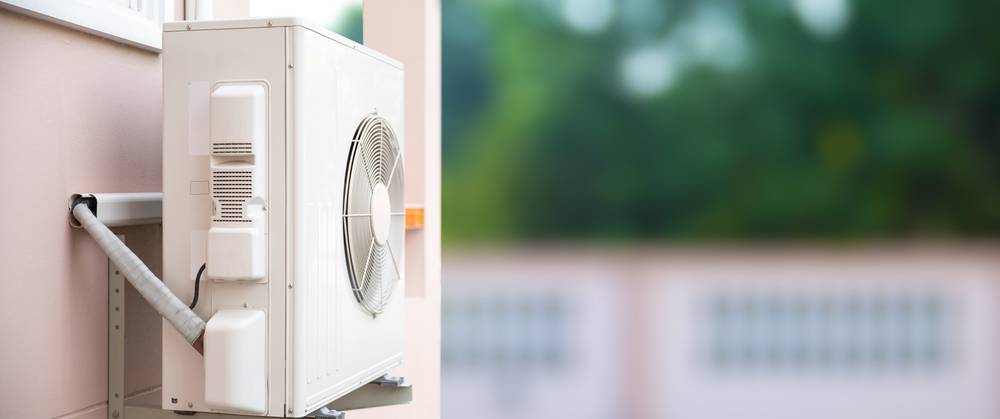Downtown Air and Heat’s Expertise
At Downtown Air and Heat, we pride ourselves on our expertise in HVAC systems and our commitment to providing our customers with excellent heating and cooling services. When it comes to heating and cooling systems, making the right choice for your home can significantly impact your comfort, energy efficiency, and overall satisfaction with your living space. In this comparison, we delve into the differences between the two most popular options: heat pump vs split system, to help you make an informed decision. If you’re looking to put a new HVAC system into your home to replace your outdated window units, here are two great options for your space.
Understanding Heat Pumps
Heat pump systems are very versatile and can heat and cool your home efficiently. They work by transferring heat from one place to another using a liquid refrigerant, making them highly energy-efficient. There are various types of heat pumps available including air source heat pumps, ground source, and mini-split systems. Each one of these heat pump systems has its own set of advantages and ideal applications.
Heat pumps work best as an air conditioner and are a great option for a warmer climate. One of the primary benefits of installing a heat pump system is its unique ability to provide hot air and cold air, eliminating the need for air conditioners, and saving you money in the long run.
Exploring Split Systems
Split systems consist of two main components: an outdoor unit containing the compressor and condenser, and an indoor unit containing the evaporator coil and blower. One of the best things about a split system is its zoning capabilities, allowing you to control the temperature in different zones or individual rooms independently. Split systems offer flexibility in terms of installation, as they can be customized to fit your home’s unique layout and space. Additionally, systems are typically quieter than traditional HVAC systems, allowing you to have warm air or cool air while still having a peaceful home.

Comparing Heat Pumps and Split Systems
When it comes to cost-effectiveness and energy efficiency, both heat pumps and split systems have their advantages. Heat pumps excel in moderate climates and are the ideal solution when the temperature rarely drops below freezing. They rely solely on ambient heat from the outside air to provide warmth, and when the outdoor air is too cold, they might have more difficulty than traditional systems. Split systems, on the other hand, offer superior performance in extreme weather conditions and can be more cost-effective in regions with harsh cold weather, or high temperatures.
Heat pumps tend to be simpler and less invasive in terms of maintenance requirements and installation, especially a mini ductless heat pump, which requires minimal ductwork. Split systems, while offering zoning capabilities, may require more extensive installation efforts, especially when applying the heating and cooling system to your existing home. To ensure optimal performance and longevity, maintenance is essential for both systems, though heat pumps may require more frequent refrigerant checks and filter changes, to keep the heat pump in efficient working order.
Indoor air quality and noise levels are also important considerations when choosing which heating and air conditioning system to install. Traditional heat pumps are generally quieter than the typical HVAC system, making them a popular heating system for noise-sensitive environments. Additionally, heat pumps can improve air quality by continuously circulating air as it moves heat into your home, filtering out impurities. Split systems, with their indoor air handlers located away from living spaces, contribute to a quieter environment, while still providing the desired air temperature to any room. Through advanced filtration options, split systems can also enhance air quality.
While both heating and cooling systems are great options, a heat pump may run into an issue as it generates heat in extremely cold climates. They are still a good choice of air handler for a house without access to gas, as they run purely on electricity. A split system will transfer heat with ease but will increase your home’s fuel consumption.
Guidance for Homeowners
There are several factors to consider when deciding between a heat pump and a split system. Evaluate your climate, energy costs, and heating and cooling needs to determine which system is best suited for your home. Additionally, consider installation costs, installation requirements, and long-term maintenance to make an informed decision.
Always follow manufacturer recommendations for maintenance and schedule regular inspections with a registered HVAC system specialist to maximize the efficiency and lifespan of your chosen system. Addressing any issues promptly can prevent costly repairs and ensure your unit operates smoothly for years to come.
There is no one-size-fits-all answer in the debate between split systems and heat pumps. When deciding which air conditioning and heating mode is right for you, you must consider all of the advantages and drawbacks and the right choice ultimately depends on your specific needs and preferences. Whether you prioritize energy efficiency, noise levels, or zoning capabilities, Downtown Air and Heat is here to help you find the perfect cooling and heating solution for your home. We have the professionals needed to install any outdoor units you might want for your dream home. Contact us today to learn more about our services and how we can enhance your indoor comfort all year round.








